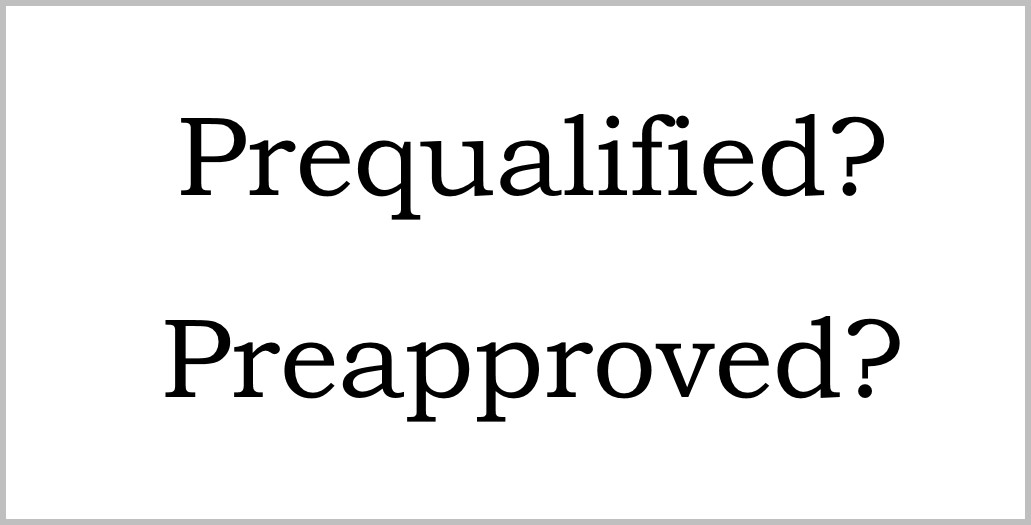A lender letter rarely will convey a guarantee. The letter will almost certainly include conditions that must be satisfied before a mortgage for the buyer would be approved.
Obviously, a lender letter isn’t applicable if the buyer will be making a purchase all in cash. But, if that’s the case, you’ll want to see copies of most recent financial statements plainly indicating the prospective buyer has more than enough cash on hand for the purchase.
From a buyer’s standpoint, a lender letter is essential to include with an offer to buy a house. Otherwise, your offer will, more than likely, not be taken seriously. And, for good reason – the lender letter is evidence you have at least begun the mortgage approval process with a specific lender and appear to have some probability of being approved.
Weak – This letter, sometimes referred to as a “prequalification letter,” will essentially say the buyer will be approved assuming the buyer’s income and assets are what the buyer has indicated they are. Imagine a buyer has gone to an online mortgage company’s website and input their social security number, income information, and asset information. The lender will run an automatic check on the person’s credit – probably only looking at credit scores. Beyond that, the lender won’t have yet verified the buyer’s income or assets. So, there’s no telling whether the prospective buyer’s self-reported information for income or assets is accurate.
Strong – This letter, sometimes referred to as a “preapproval letter,” clearly indicates the lender has already verified the buyer’s credit, income and assets. In other words, the lender will have already taken the mortgage application at least partially through the underwriting process, meaning they have run the buyer’s credit report plus received from the buyer, and analyzed, the buyer’s tax returns, pay stubs, and financial statements. If the letter does not explicitly say the lender has verified anything, then it should be assumed the lender has not.
From a seller’s standpoint, the “strong” letter is obviously much preferred. However, you’ll often find lenders that will only provide a “weak” one – as a cost-saving measure, they want to keep costs down by putting off any underwriting effort until after there’s a ratified contract.
From a buyer’s standpoint, to be sure you can obtain a “preapproval letter” to submit with your offers, you should ask lenders you’re considering – before you’ve committed to one – whether they’ll do this for you. Specifically ask whether they will provide a letter that explicitly indicates they have verified your credit, income and assets. If they say no, or attempt to argue this isn’t necessary, you may want to consider other lenders who will.

